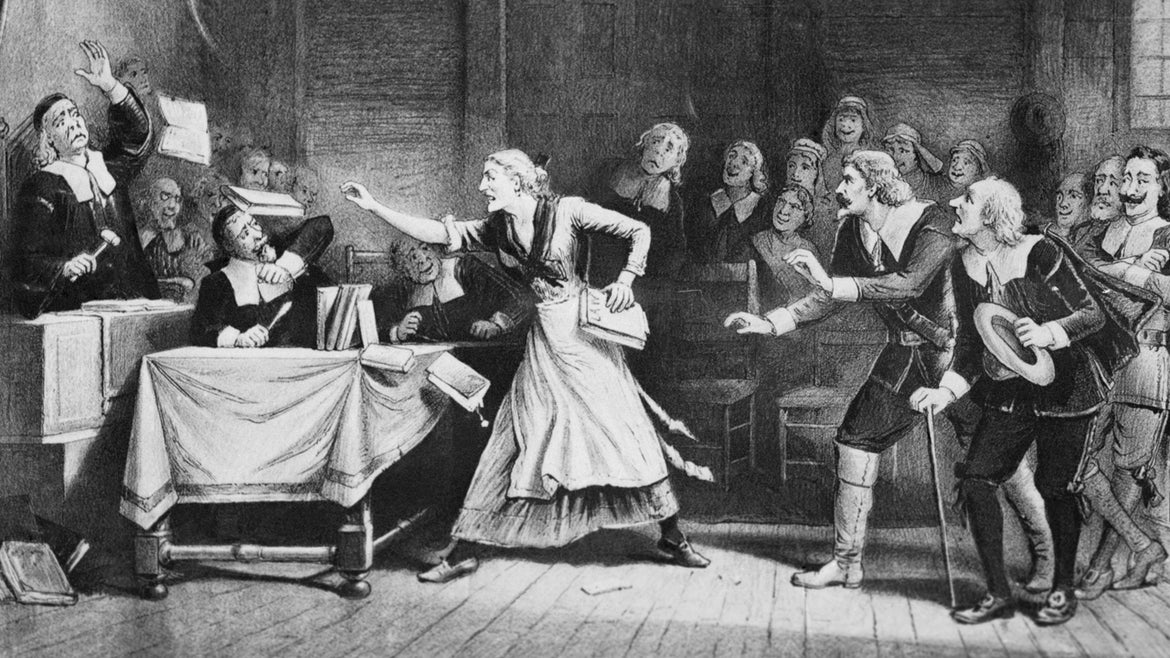Sen. Diana DiZoglio, who has introduced legislation to clear the name of Elizabeth Johnson Jr., said she was inspired by a group of 8th graders from North Andover Middle School who researched Johnson's case in a civics class.
A group of 8th graders are leading the effort to get a Massachusetts woman pardoned more than three centuries after being wrongfully convicted of practicing witchcraft during in the Salem Witch Trials, the Associated Press reported.
State Senator Diana DiZoglio, a Democrat from Methuen, has introduced legislation, known as S.1016, to clear Elizabeth Johnson Jr., who was condemned in 1693 at the height of the Salem Witch Trials but never executed, the AP reported.
“It is important that we work to correct history,” DiZoglio told the AP. “We will never be able to change what happened to these victims, but at the very least, we can set the record straight.”
The senator said she was inspired by a group of 8th graders from North Andover Middle School who researched Johnson's case in a civics class.
“Why Elizabeth was not exonerated is unclear but no action was ever taken on her behalf by the General Assembly or the courts,” DiZoglio said.
Johnson was 22 when she was sentenced to death. But her life was spared when Gov. William Phips put an end to the hangings. Johnson had no children and was not married, which may have led others to view her as less worthy of exoneration. This also meant she had no descendants to work to clear her name.
“We don’t know why, but in all of these efforts to pardon the women convicted of witchcraft but never actually put to death, Elizabeth was never included,” Emerson Baker, a history professor at Salem State University, told the Boston Globe. “In the eyes of the law, her conviction still technically stands.”
Centuries later, Johnson’s own mother saw her conviction reversed and was pardoned.
It is unknown why Johnson was convicted in the trials in the first place and very little is known about her history. It is known is that she was from a nearby town in Salem called Andover.
“More people were arrested in Andover than any other town, including Salem Village,” Richard Hite, a historian who has studied the trials in Andover extensively, told the Boston Globe.
During the height of the Salem Witch Trials, the Puritans killed 20 people from Salem and neighboring areas and accused others of being witches. Nineteen people were hanged and one man was pressed to death with stones during the frenzy.






